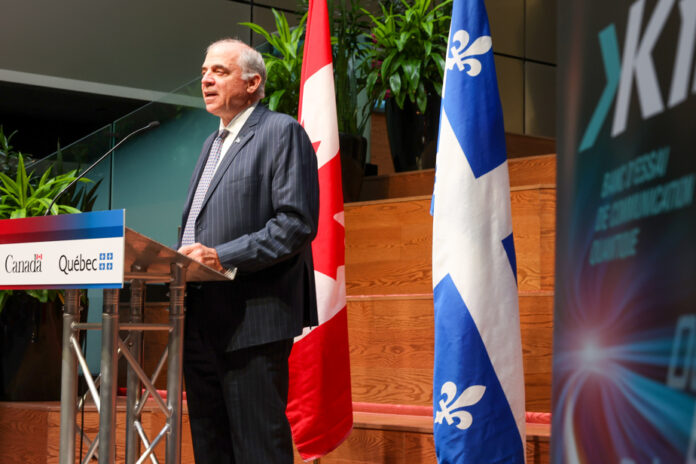The culmination of an idea born in 2019, a “Quebec quantum communication network” called Kirq will be set up in Montreal, Quebec and Sherbrooke to accelerate research in this promising field.
This project, estimated at 13 million, including 6.5 million from Quebec and 3.6 from Ottawa, will be deployed and operated by the non-profit organization Numana. The announcement was made this Monday in the presence of the Minister of Economy, Innovation and Energy Pierre Fitzgibbon and his colleague Soraya Martinez Ferrada, federal Minister of Tourism and responsible for Canada Economic Development for the regions of Quebec.
Essentially, we will first set up an optical fiber infrastructure dedicated to research on quantum communication in three cities in Quebec. In Montreal, for example, this network will connect three facilities. It will be made available to any company, SME, start-up, research center or educational institution that wants to experiment with quantum-based communications methods. Sherbrooke already has its test bed, in the DistriQ innovation zone, while those of Montreal and Quebec are planned for early 2024. It is expected that these three local networks, called “nodes”, will eventually be interconnected.
Why is new infrastructure needed? “The current fiber optic network, which connects Montreal and Quebec for example, does not work for quantum,” explains Benoit Simard, vice-president of product and business solutions at Telus, one of the suppliers for this network with Bell and Ciena .
This test bed was presented as a unique initiative in Canada. In the world, South Korea and China have already set up such networks, but commercial and on a much larger scale with respective lengths of 800 and 2000 km.
Ultimately, explained François Borelli, CEO of Numana, in an interview, Kirq will also use satellite and 5G communications modes in addition to optical fiber.
Kirq, he summarizes, “wants to be a testing ground for all players in the ecosystem”. He agrees that research in the field of quantum computing is still in its early stages but believes that Quebec has no choice in being at the forefront. “One thing is certain, it’s going to happen. It’s time to get moving today. »
“The current infrastructure will be completely broken, it is inevitable,” says Gilles Brassard, professor at the University of Montreal and world leader in quantum cryptography. The day the quantum computer becomes a reality, everything that has been encrypted can be taken out of mothballs and deciphered. »















